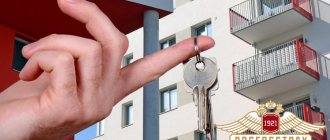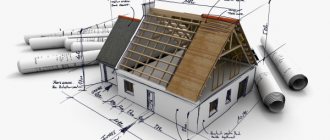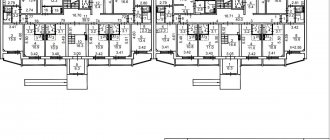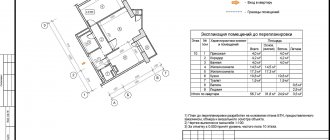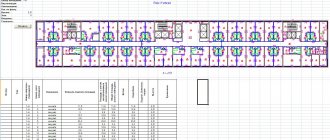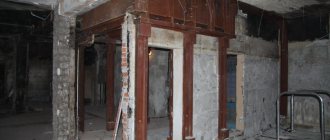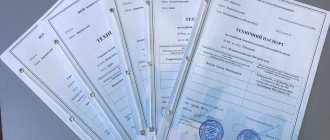Why do you need a technical passport for non-residential premises?
According to the laws of the Russian Federation, technical passports must be drawn up for each building or structure, regardless of whether the building is residential or has an industrial or other purpose.
In addition, the law strictly defines the rules for filling out a technical passport, the mandatory information that this document must contain and the type of forms to fill out.
The technical data sheet contains several pages, namely:
- Title page. It contains a brief description of the property indicating the exact address, location and information about the owner;
- Page with the floor plan of the building;
- Diagram of the building with marked boundaries;
- A detailed technical report on the condition of a non-residential building or premises;
- Additional information about the owner of the building.
A technical passport for a non-residential building may be needed if:
- The previous document is out of date and there have been changes in the actual condition of the building;
- Floor plan information needs to be updated;
- There is a need to record and register measures for redevelopment of the building;
- It is necessary to register the object with the cadastral chamber;
- When concluding a long-term lease agreement between the owner and the tenant;
- To draw up a contract for the sale and purchase of a non-residential building.
The list may be supplemented by other reasons due to which there is a need to obtain technical documentation for a non-residential property.
The main thing to remember about the technical passport
To summarize, we can say that the technical passport is a very important document for any property; its registration process is quite lengthy and energy-consuming, so it is important to remember the following:
- Contacting BTI directly will save you money, and contacting a specialized company will save you money;
- By preparing all the necessary documents in advance, you can avoid multiple visits to the BTI and issue a registration certificate much faster;
- To avoid having to re-issue a registration certificate, it is better to store it, like any real estate documents, in a safe or safe deposit box.
If you don’t have the time or opportunity to deal with paperwork, you can postpone receiving a registration certificate, but in no case should you refuse it - this document is very important for any property.
Technical passport in simple language. Samples of technical passport
Even with the obvious similarity of homogeneous real estate objects, they have unique characteristics. To identify each object (apartment, room, house, permanent structure, building, etc.), their parameters are recorded in the technical documentation:
- in the technical passport of the BTI (until 2013);
- in the cadastral passport (until 2021);
- in technical terms and an extract from the Unified State Register.
BTI specialists were involved in preparing the technical passport. Until 2013, this service was vested with powers for the initial and subsequent inventory of residential and non-residential stock, accounting of objects, and preparation of technical documentation. Formally, inventory functions are still retained by the BTI, but their practical significance is significantly limited.
Expert commentary . If you still have a technical passport for an apartment, house or building, this document has no legal force. Technical passports were issued until 2013, and their validity period did not exceed 5 years. Accordingly, starting from 2021, all passports previously issued by BTI institutions have already lost their validity. If you need to record the characteristics of a room or building in an official document, contact cadastral engineers.
Technical passport in legal language
Since the technical passport was issued based on the results of the inventory, it contained information about the characteristics of the premises or building obtained as a result of measurements and regulatory calculations. Regulatory regulation of the procedure for obtaining and using passports in Moscow is carried out:
- according to Federal Law No. 218-FZ, which recognizes the technical plan as the only appropriate document for cadastral registration;
- according to the Housing Code of the Russian Federation, which requires changes to the technical documentation after the redevelopment or reconstruction of an apartment or non-residential premises of an apartment building;
- Decree of the Government of the Russian Federation No. 1301, which approved the procedure for accounting for the housing stock (this document is used in a limited manner);
- Order of the Ministry of Land Construction of the Russian Federation No. 37, which approved instructions on the procedure for recording and inventorying real estate (the document is also used in a limited manner).
Letter No. D23I-449 of the Ministry of Economic Development of the Russian Federation dated February 22, 2013 confirmed that the requirement to issue technical passports for real estate has become invalid since 2013. However, the document does not prohibit ordering and using registration certificates on a voluntary basis.
Expert commentary . You don’t need a registration certificate when selling an apartment. The cadastral number and other mandatory information on the property are contained in the Unified State Register of Real Estate. The USRN extract contains not only unique object identifiers, but also graphic materials (diagrams, copies). Therefore, in the purchase and sale agreement it is necessary to indicate information from the Unified State Register of Real Estate, and not from the technical passport of the BTI.
What documents are needed to obtain it?
In order to obtain a registration certificate for non-residential premises, you must present documents, the list of which is established by law.
The following documents are required to be provided:
- Owner's passport;
- Title documentation for ownership of non-residential premises;
- Application for registration of a technical passport;
- Receipt for payment of the mandatory state duty.
In addition to the required documents listed, additional information may be needed, depending on the specific situation.
For example , if the property is subleased and the subtenant is involved in the registration, then it is necessary to present his documents, as well as a power of attorney from the owner.
For reference! When obtaining a technical passport, it is necessary to have conclusions from the SES, fire and gas services.
You may be interested in the article on how to start privatizing an apartment.
And here you can find out about the division of a personal account in a privatized apartment.
Where and how to get a floor plan?
Every person who wants to receive a technical plan of their premises must write an application to the technical inventory bureau. The applicant must provide copies of the following documents :
- passport proving the person’s identity;
- documentation confirming the right to property (more details about the right of ownership of non-residential buildings and premises can be found in this material);
- cadastral and technical passports;
- the application itself;
- floor plan;
- receipt of payment of the mandatory state fee for the provision of the service;
- a conclusion from the SES, gas and fire services may also be required.
This request can be made to the BTU either by the owner himself, who has the right to own the premises, or by a person who is authorized and certifies this with the appropriate document. The state fee for drawing up a technical plan throughout the Russian Federation is 1,500-2,000 rubles; if the documentation is requested by a legal entity, the amount can reach 5,000 rubles.
As for the timing, as is customary, the plan is drawn up within 20-30 working days . You can also use the services of the Internet portal of Rosreestr and the MFC to submit an application.
Where to submit documents?
In order to obtain a technical passport for non-residential premises, just as when receiving a technical passport for a house or apartment, documents are submitted to the BTI (technical inventory bureau).
In this case, the originals of all documents remain with the applicant; only copies are provided to the specialist. He removes them himself after familiarizing himself with the originals.
Advice! In order to avoid any problems and delays in obtaining a technical passport, when submitting documents to the BTI, it is necessary to certify in the presence of a service employee each copy taken.
The registration certificate must be retained for the entire time the building is used. In cases where the owner or tenant carries out reconstruction, redevelopment or builds extensions, all changes must be documented. Only employees of the BTI service have the right to make amendments to the passport for an object.
Where to contact?
To obtain the document, you need to contact the BTI at the location of the property. Other organizations specializing in cadastral work are also involved in registration. Such organizations must have a license from Rosreestr. You can find specialists in your region on the Rosreestr website or on the website of the city cadastral chamber. You can also submit papers through the MFC or through the State Services portal.
REFERENCE! The procedure can only be carried out by the owner of the premises or his representative with a notarized power of attorney.
How to obtain a BTI technical passport?
The passport is issued both for the whole building and for its individual premises or group of premises. It contains the following information about the property:
- location;
- year of construction of the building in which the facility is located;
- physical deterioration;
- floor plan of the house and description of the property;
- inventory and cadastral number;
- the area of each room (or room) and the entire facility as a whole;
- explication;
- general information about the system and structure of the house (the material from which the walls are made, ceilings, heating, sewerage, the presence or absence of water supply, electricity, ventilation);
- sanitary and hygienic standards for residential premises;
- indication of unauthorized construction or redevelopment.
The BTI technical passport is one of the main documents of a real estate property.
To issue a technical passport, you need to conduct an inventory. It is divided into primary and secondary.
The primary one is issued for the first time and is a necessary procedure for the acceptance into operation of constructed objects: buildings, residential buildings, dachas, garages, shops, shopping centers, sports centers and other infrastructure facilities. In both cases, technical passports of real estate objects are drawn up in the same way.
What documents are needed?
To obtain a registration certificate, you must submit the following package of documents:
- Your passport;
- papers confirming ownership of a specific property (purchase and sale, gift or exchange agreement, certificate of ownership, etc.);
- application in the prescribed form;
- old (primary) technical passport;
- receipt for payment of state duty.
To verify documents, you will need to provide copies and originals.
Then all you have to do is wait for the BTI engineer, who will carry out all the inspections and measurements necessary to issue a technical passport.
When applying to the MFC (multifunctional center), you will need the same list of documents, except for a receipt for payment of the state duty. MFC specialists can check its availability through a special service.
To receive a completed document, you should contact the place where you submitted the documents, and you need to have your passport with you.
Note!
If you do not have the opportunity to appear at the BTI yourself, you can obtain the document through a representative. To do this, you need to issue a power of attorney and have it notarized.
Production time for a technical passport at BTI
On average it is 5-14 days. Usually, when contacting the BTI, the document is drawn up in about 10 days. During the same period, the service is provided when submitting documents to the multifunctional center.
The production period for a BTI technical passport should not exceed 14 days.
When contacting third-party organizations authorized by the Technical Service Bureau, the period for obtaining a passport may be much shorter than when applying directly to the BTI or MFC, up to one day.
Extract from the technical passport of the BTI
It is necessary to perform notarial acts (entry into inheritance, etc.). The extract contains information about the property indicating certain data and information about the survey of the property on a specific date with a designation of the plan. Such a certificate is drawn up for residential and non-residential properties: apartments, houses, garages, taking into account the latest inventory information.
To obtain an extract, you need to contact the BTI (if the data on the property was registered before January 31, 1998) or Rosreestr (if the inventory was completed after January 31, 1998).
The period for providing an extract from the BTI technical passport is no more than 10 days.
You must have with you:
- passport;
- title documents;
- application for the provision of services;
- letter of guarantee;
- power of attorney;
- receipt for payment of state duty.
What is the difference between a BTI technical passport and a technical plan?
The technical plan differs from the passport in that, in addition to the main characteristics of the structure described above, it contains a coordinate reference to the land plot and nearby objects. This allows you to clearly determine the location of the house in space and, therefore, unambiguously identify the immovable object. After all, many buildings built according to standard designs were similar to each other, like twin brothers. Accordingly, their technical passports were also similar, which led to various kinds of abuses.
Therefore, in order to register a finished or unfinished house with the Unified State Register of Real Estate, today you need NOT a technical passport, but a technical plan!
A passport issued by the BTI before 2013 may be required by a cadastral engineer to draw up a house (building) plan. For example, in a situation where a building is not registered in the cadastral register or is refused due to the lack of exact coordinates of the location of the land plot on which it is built. The specialist uses the passport data to obtain information about the characteristics of the building.
The technical passport of a house is used by a cadastral engineer (it doesn’t matter whether he works in the BTI or in a private organization) only in the absence of a project or permission to put the facility into operation (act). This situation occurs in relation to many private houses and cottages in summer cottages. Designs are not required for single-family structures up to three stories. According to the dacha amnesty, it was not necessary for them to have a construction permit and commissioning certificate.
Who can apply for a technical passport?
Both the owner and a person who has a power of attorney certified by a notary to carry out the registration process can submit the necessary documents in order to obtain a technical passport of a building or premises.
For reference! Obtaining a technical passport is a long and labor-intensive process that includes many nuances. For this reason, many owners of non-residential premises prefer to seek help from agencies and bureaus that provide assistance in preparing documentation.
Turning to specialists for help allows the owner or tenant to save their time. In addition, a professional approach guarantees compliance with all rules and regulations established by law.
How a technical passport is prepared
To produce a technical passport, an inventory of the premises or buildings is carried out. It consists of measurements, instrumental examination, and standard calculations. The contents of the passport of a premises or building include the following characteristics:
- the area of the building and each room, auxiliary buildings, loggias, balconies, terraces;
- year of construction of the facility;
- the initial inventory value of the object (using this indicator, you can also calculate the current inventory value);
- materials from which walls and ceilings are made;
- diagrams of engineering and technical communications;
- floor plans of the building, statements of premises;
- other technical information.
The contents of the technical passport do not indicate the cadastral number, which is the main unique identifier of real estate in 2021. Information about the cadastral number can only be obtained from the Unified State Register of Real Estate.
Technical passports, stored until 2013 in the BTI, were transferred to the ownership of regional authorities. Storage of these documents and provision of technical information upon request is permitted through the BTI archives.
Expert commentary . If you need a technical passport, the owner of the property or his representative by proxy can order and receive it. For proper transfer of powers, the power of attorney must be certified by a notary. A power of attorney can be issued by a manager on behalf of an organization.
Technical passport production time
According to the law, the relevant services have 14 days from the date of submission of the application to issue a registration certificate for non-residential premises. But in reality, this process can take much longer for many reasons, for example:
- Bureaucratic delays;
- The applicant’s lack of awareness of the sequence of actions;
- Lack of required documentation.
Other obstacles may also arise due to which it is not possible to receive documents on time.
Validity
The law does not establish a time frame for the relevance of the technical passport of non-residential premises. The document is valid until changes are made to the actual state of the object. In this case, the previous registration certificate is considered outdated and updating it or obtaining a new document is a prerequisite.
Attention!
Our articles talk about typical ways to resolve legal issues, but each case is unique. If you want to find out how to solve your particular problem, call: +7(499) 703-42-21 - Moscow +7(812) 309-91-17 - St. Petersburg +7(800) 500-27- 29 ext. 482 - Russia (general) or if it is more convenient for you, use the online consultant form below! All consultations with lawyers are free.
